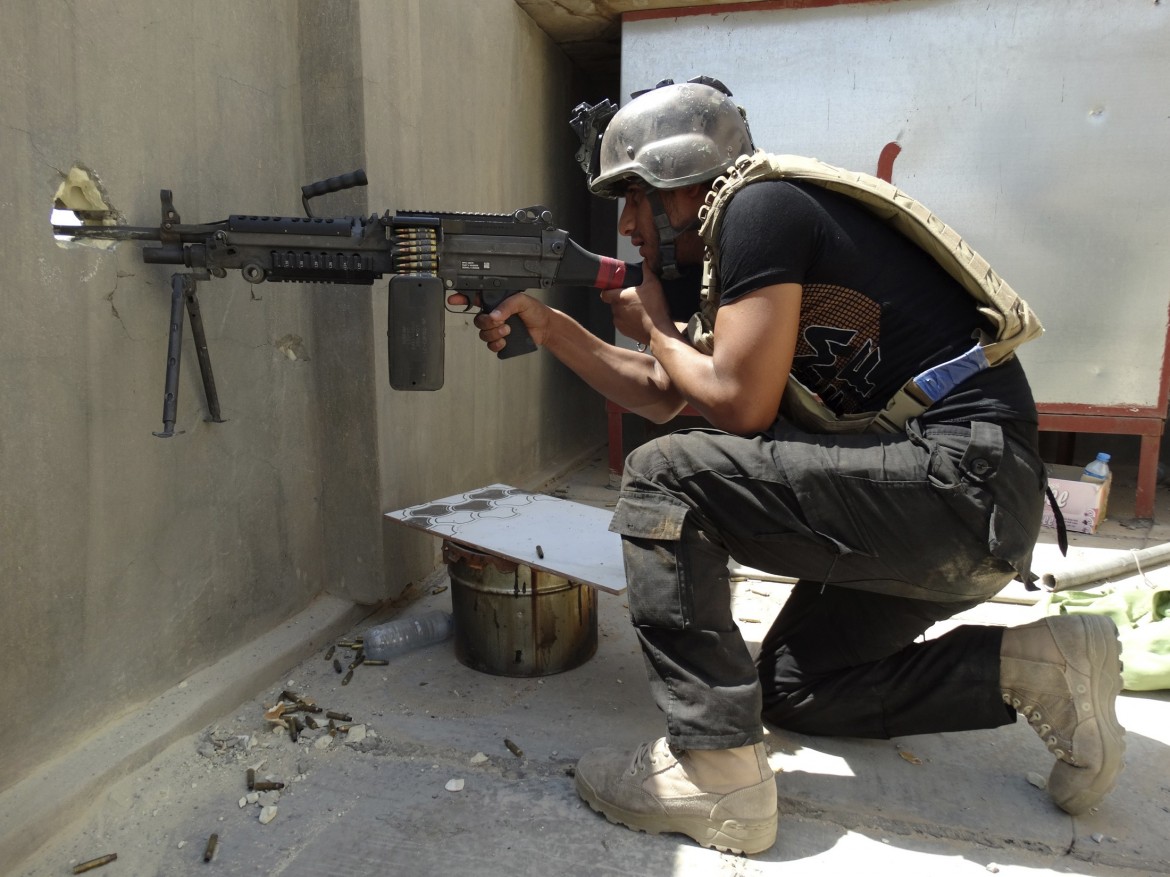Iraq
Kurds maneuver for post-ISIS Iraq
A common enemy in the Islamic State is the only thing keeping Iraqi Kurdistan together. The government doesn’t intend to cede power to reform party, telling il manifesto: “Democracy makes people believe that they can talk just because they have a mouth.”

U.S. ground troops are eventually bound for Iraq and Syria: On Tuesday, Defense Secretary Ashton Carter announced the deployment of special forces in Iraq for direct operations, freeing hostages and capturing Islamist leaders.
“In full coordination with the Iraqi government, we’re deploying a specialized expeditionary targeting force to assist Iraqi and Kurdish Peshmerga forces and to put even more pressure on ISIL,” he said, using an acronym for ISIS. That’s not all: They’re also going to take “unilateral steps” in Syria.
For now, no one is giving troop numbers or a timeframe, but the U.S. mobilization comes just a few days after the Kurds and Iraqis announced their own.
On Saturday, the head of the peshmerga, Jamal Eminki, announced future operations in Tal Afar and Mosul. Erbil, the capital of Iraqi Kurdistan, has always denied plans to annex Mosul into its territory, but the forces of Masoud Barzani, president of the region, could very well take part in its liberation. The Kurds’ territorial positioning is strategic: Ever since it captured Sinjar, to the west, they have Mosul surrounded.
At the same time, the Iraqi Air Force dropped leaflets on civilians trapped in Ramadi, the capital of Anbar Province: Evacuate the city, they said, because a counteroffensive will start in a day or two. Ten thousand soldiers against 600-1,000 Islamists, according to U.S. estimates. While France bombs from above, the U.S. has provided the army in Baghdad with anti-mine equipment and bulldozers to get around the defences ISIS has erected around Ramadi.
With ISIS on the defensive, it’s time to tighten the ranks and define the areas of control. In the Kurdish homeland, the threat of the self-styled caliphate is the glue holding factions together during a period of internal crisis. On one side is the traditional political class, represented by Barzani’s majority party, the KDP. On the other is the Gorran reform movement, a faction of the PUK.
Barzani’s methods are predictable: the exclusion of the Gorran coalition from government. The excuses are also predictable: to avoid domestic chaos during the fight against ISIS. The opposition says this is a clever exploitation of the situation by Barzani, who, after two terms and a two-year extension granted in 2013, is still firmly in power.
The justification for excluding Gorran came in October, when anti-government protests erupted in the eastern cities. Erbil immediately accused the reformers: “The recent violence is a deliberate plan of Gorran,” said Masrour Barzani, head of intelligence and the president’s son.
In response, on Oct. 12, Nechirvan Barzani, prime minister of Iraqi Kurdistan and the president’s nephew, kicked five ministers out of the coalition government. And the speaker of parliament, Yusuf Mohammed, a member of Gorran, was refused entry to Erbil by KDP militias and is still stuck in Sulaymaniyah.
“Barzani’s hands are everywhere. When we agreed to enter the government, we thought we could initiate reforms, but the political system is so corrupt as to make it impossible,” Rabun Maruf, leader of Gorran Kurdish parliament, told me flatly when I met him in a cafe here.
“In the elections, we got 24 percent and important ministries: Peshmerga, Finance, Religious Affairs and Industry. And the chair of the Committee on Investments,” he said. “We were convinced they could undermine the Kurdish patronage system, but the KDP has stripped our authority. Not only did they not support the reforms, but our ministers were cut off: The Finance Minister has never viewed the oil revenues budget, the Peshmerga had no control over the armed forces.
“We are on the brink of chaos. Barzani’s expired presidency is illegal, Erbil is controlled by militias linked to the KDP, the political elite have become millionaires abusing their offices,” Maruf said. “The system of corruption that has been in force for 20 years, the civil war between the KDP and PUK, is one of the worst in history but is so ingrained as to appear as a normal phenomenon and yet is responsible for the economic crisis. With ISIS at the gates, the money from crude oil disappears, sucked into the machine of corruption. So, of course protests erupted.”
Yet when I talked to Safin Dezaee, spokesman for the Kurdish government, the KDP didn’t hesitate to assign blame to Gorran.
“Gorran has superimposed popular demands onto its own political agenda,” Dezaee said. “Because of the state of crisis, projects were blocked, some companies have declared bankruptcy and social tensions were created. Gorran pushed on these antagonisms for political purposes, risking anarchy. Democracy makes people believe that they can talk just because they have a mouth.”
Originally published at http://ilmanifesto.info/iracheni-verso-ramadi-peshmerga-verso-mosul-e-marines-in-siria/ on 2015-12-02
